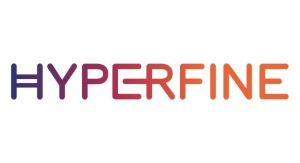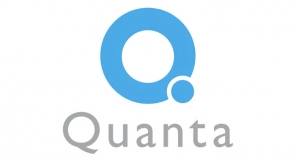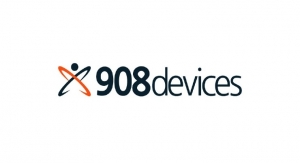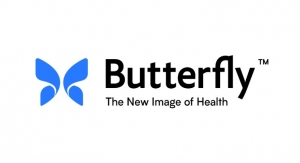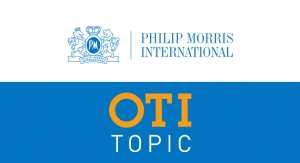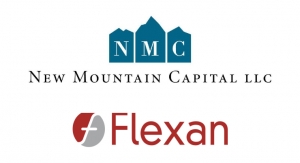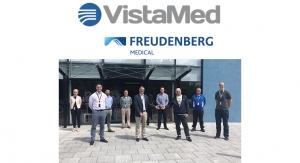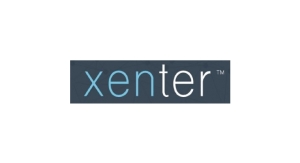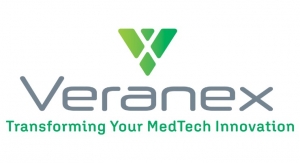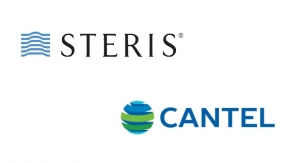Sean Fenske, Editor01.31.17
The use of big data in healthcare is a trend that’s still in its infancy and only going to continue to grow rapidly. Unfortunately, many medical device manufacturers aren’t equipped with the right expertise to incorporate this tool into their products. As such, they are seeking help from firms who specialize in this area.
Reltio is one such company that offers a variety of solutions to medtech to help best integrate the use of data into devices. In order to get a better idea of what the company does specifically for the industry, I spoke with Ajay Khanna, the vice president of product marketing at Reltio. He shared insights on the company’s role with regard to big data integration and also shared the significance of a recently announced partnership with QuintilesIMS.
Sean Fenske: Can you share some insights on what Reltio does as it relates to the medical/healthcare space?
Ajay Khanna: Reltio is the only modern data management Platform as a Service (PaaS) that enables enterprise data-driven applications with reliable master data, relevant big data insights, and intelligent recommended actions specifically designed for the healthcare and life sciences industries. The company’s innovations enable business users in healthcare and life sciences, such as sales, marketing, medical, and compliance, to gain a true 360-degree view of providers, care organizations, products, partners, patients, and their relationships.
Reltio for Life Sciences delivers reliable HCP/HCO data, uncovers affiliations and relationships for complete customer understanding, and provides relevant insights and recommended actions for better sales effectiveness, personalized marketing, key account management, and compliance.
Fenske: Recently, Reltio announced a partnership with QuintilesIMS. What was the motivation and thinking behind this collaboration?

Ajay Khanna is the vice president of product marketing at Reltio.
Khanna: Reltio partnered with QuintilesIMS to bring to the market advanced information management solutions for life sciences. This breakthrough partnership enables life sciences organizations to be agile, flexible, and scalable, thus coping with product launch pressures, new compliance demands, new commercial models, and risks tied to constant change and regulatory uncertainty.
The alliance empowers clients with a fully connected platform supported by mission-critical healthcare information capabilities and innovative SaaS applications, delivering a 360-degree view of stakeholders to better orchestrate customer engagement and achieve commercial goals.
With this alliance, customers will also enjoy on-demand access to QuintilesIMS’ OneKey reference data set within the Reltio Cloud and native integration of OneKey enables near-real-time updates, as well as matching and merging across the entire QuintilesIMS data set.
Fenske: What’s the ultimate goal of this relationship?
Khanna: The goal is to bring advanced information management solutions to the life science industry, with high-performance and healthcare information capabilities to shorten time to market for new drugs and therapies and support new commercial models.
For more information on this, a series of videos feature executives from QuintilesIMS and Reltio discussing how the alliance will help the healthcare and life sciences industries.
Fenske: Looking more at the use of big data in healthcare, why has this trend become so significant?
Khanna: With new commercial models and an increase in patient involvement in their care decisions, the volume, variety, and velocity of data is increasing. Patients, as well as physicians, are demanding consumer-like omnichannel experiences, healthcare organizations are moving toward a pay-for-performance model, and there are more regulatory pressures than ever before. Ensuring reliable data across all commercial and customer engagement systems has become crucial.
In this environment, the partnership will allow Reltio and QuintilesIMS to offer life sciences organizations new options for fast, scalable access to big data technologies, pre-integrated data, and high-performance analytics—dramatically enhancing customer experience and commercial effectiveness while reducing complexity and costs.
Fenske: Some doctors have actually pushed back on the data overflow, saying it’s not useful or actionable. How can companies like Reltio help them to make it something useful?
Khanna: Reltio helps life sciences organizations create a 360-degree view of physicians to have a better understanding of their needs, affiliations, and manage regulatory information like sample eligibility. This allows organizations to provide physicians with relevant information at the right time via the channel of their choice. The solution is not used by the physicians themselves to treat patients.
Fenske: So while ultimately providing better solutions for physicians, you’re really working with medical device manufacturers, correct?
Khanna: Yes, we work with medical device manufacturers. Similar to life sciences customers, medical device companies also use Reltio to manage complete information about HCPs, HCOs, products, and affiliations.
Fenske: As an industry, we’ve been in the data collection mode for several years now. Is the analysis of this data starting to truly reveal trends that are useful?
Khanna: The actionability of the data depends on its reliability. Simply collecting data without a business purpose will not deliver value. Reltio helps life sciences companies blend data from multiple internal, external, and third-party sources, and then match, merge, and relate the data to create a reliable data foundation. Then, using the predictive analytics and machine learning, it provides relevant insights and intelligent recommendation to the business users in the context of their business role and objective, from within their operational applications like key account management or affiliation management.
Fenske: What’s ahead in regard to big data and its use in healthcare?
Khanna: In the coming years, the systems, channels, and as a result, volume of data is only going to increase. Companies have to act now to establish solutions, processes, and governance to ensure reliable data. In the coming years, we’ll see more cognitive systems leveraging this data to provide better customer engagement, bringing drugs to market faster, and increasing adoption of models like pay-for-performance and personalized medicine.
Reltio is one such company that offers a variety of solutions to medtech to help best integrate the use of data into devices. In order to get a better idea of what the company does specifically for the industry, I spoke with Ajay Khanna, the vice president of product marketing at Reltio. He shared insights on the company’s role with regard to big data integration and also shared the significance of a recently announced partnership with QuintilesIMS.
Sean Fenske: Can you share some insights on what Reltio does as it relates to the medical/healthcare space?
Ajay Khanna: Reltio is the only modern data management Platform as a Service (PaaS) that enables enterprise data-driven applications with reliable master data, relevant big data insights, and intelligent recommended actions specifically designed for the healthcare and life sciences industries. The company’s innovations enable business users in healthcare and life sciences, such as sales, marketing, medical, and compliance, to gain a true 360-degree view of providers, care organizations, products, partners, patients, and their relationships.
Reltio for Life Sciences delivers reliable HCP/HCO data, uncovers affiliations and relationships for complete customer understanding, and provides relevant insights and recommended actions for better sales effectiveness, personalized marketing, key account management, and compliance.
Fenske: Recently, Reltio announced a partnership with QuintilesIMS. What was the motivation and thinking behind this collaboration?

Ajay Khanna is the vice president of product marketing at Reltio.
The alliance empowers clients with a fully connected platform supported by mission-critical healthcare information capabilities and innovative SaaS applications, delivering a 360-degree view of stakeholders to better orchestrate customer engagement and achieve commercial goals.
With this alliance, customers will also enjoy on-demand access to QuintilesIMS’ OneKey reference data set within the Reltio Cloud and native integration of OneKey enables near-real-time updates, as well as matching and merging across the entire QuintilesIMS data set.
Fenske: What’s the ultimate goal of this relationship?
Khanna: The goal is to bring advanced information management solutions to the life science industry, with high-performance and healthcare information capabilities to shorten time to market for new drugs and therapies and support new commercial models.
For more information on this, a series of videos feature executives from QuintilesIMS and Reltio discussing how the alliance will help the healthcare and life sciences industries.
Fenske: Looking more at the use of big data in healthcare, why has this trend become so significant?
Khanna: With new commercial models and an increase in patient involvement in their care decisions, the volume, variety, and velocity of data is increasing. Patients, as well as physicians, are demanding consumer-like omnichannel experiences, healthcare organizations are moving toward a pay-for-performance model, and there are more regulatory pressures than ever before. Ensuring reliable data across all commercial and customer engagement systems has become crucial.
In this environment, the partnership will allow Reltio and QuintilesIMS to offer life sciences organizations new options for fast, scalable access to big data technologies, pre-integrated data, and high-performance analytics—dramatically enhancing customer experience and commercial effectiveness while reducing complexity and costs.
Fenske: Some doctors have actually pushed back on the data overflow, saying it’s not useful or actionable. How can companies like Reltio help them to make it something useful?
Khanna: Reltio helps life sciences organizations create a 360-degree view of physicians to have a better understanding of their needs, affiliations, and manage regulatory information like sample eligibility. This allows organizations to provide physicians with relevant information at the right time via the channel of their choice. The solution is not used by the physicians themselves to treat patients.
Fenske: So while ultimately providing better solutions for physicians, you’re really working with medical device manufacturers, correct?
Khanna: Yes, we work with medical device manufacturers. Similar to life sciences customers, medical device companies also use Reltio to manage complete information about HCPs, HCOs, products, and affiliations.
Fenske: As an industry, we’ve been in the data collection mode for several years now. Is the analysis of this data starting to truly reveal trends that are useful?
Khanna: The actionability of the data depends on its reliability. Simply collecting data without a business purpose will not deliver value. Reltio helps life sciences companies blend data from multiple internal, external, and third-party sources, and then match, merge, and relate the data to create a reliable data foundation. Then, using the predictive analytics and machine learning, it provides relevant insights and intelligent recommendation to the business users in the context of their business role and objective, from within their operational applications like key account management or affiliation management.
Fenske: What’s ahead in regard to big data and its use in healthcare?
Khanna: In the coming years, the systems, channels, and as a result, volume of data is only going to increase. Companies have to act now to establish solutions, processes, and governance to ensure reliable data. In the coming years, we’ll see more cognitive systems leveraging this data to provide better customer engagement, bringing drugs to market faster, and increasing adoption of models like pay-for-performance and personalized medicine.


